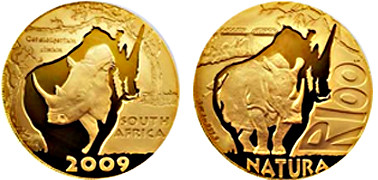
PREV ARTICLE
NEXT ARTICLE
FULL ISSUE
PREV FULL ISSUE
TIM SHUCK ON THE CCAC BLUEPRINT FOR U.S. COIN EXCELLENCETim L. Shuck of Ames, IA writes: I decided to stick my head in the lion's mouth (again) and critique the Citizens Coinage Advisory Committee's recent "A Blueprint for Advancing Artistic Creativity and Excellence in United States Coins and Medals".
Here are some excerpts from Tim's essay - follow the link to read the complete version, and the reader comments which follow it.
-Editor
To much fanfare and a touch of hype, the CCAC recently released "A Blueprint for Advancing Artistic Creativity and Excellence in United States Coins and Medals", a 62-page (including appendices) document with a cover appropriately designed with blue highlights. Having read through the Blueprint a couple of times I'm not convinced this latest effort does indeed represent my interests as either a citizen or a collector. Why? Because the Blueprint is focused, still, on process and organization, and reads much like an internal management document. The CCAC apparently remains convinced that if process is improved, excellent coin design will automatically follow.

For example, the CCAC presents helpful charts (with detailed descriptions) and a flurry of acronyms as examples of things that presumably will improve the designs of United States coins and medals. The proposed processes may indeed be better than what is currently in place. But are processes really how great design in any endeavor is produced, or more to the point, found? By following a chart? There are many points outlined in the document that could be items for discussion, but I want to instead turn the point of this post elsewhere, to recent coin designs of other countries. There is another way to achieve excellent coin design - select rather than push. Note that teams, juries, or committees are part of this effort for the purpose of selecting a design, not for managing the process of design. There is a big difference. There is little discussion in the Blueprint about whether there might be too many U.S. coins and medals produced each year, potentially too many committees and/or meetings, an analysis of the possibility that maybe circulating coinage is today primarily just a means of commerce, or that additional staff and staff time commitments might actually make the perceived problems worse rather than better. I don't think this is how great design happens. Wouldn't it be better to select the great designs from an array of good designs rather than trying to tweak a process so that it will somehow, some way result in good designs? Isn't the former how most of the 'classic' designs of the early 20th century, so highly appreciated today, came about? Design evaluation is and always has been subjective, something I believe even CCAC members know. So why not opt for a simpler path, rather than a complicated path burdened by bureaucracy?
Tim's article references some of the processes and coins of Canada and South Africa.
-Editor


To read the complete article, see:
Adopt the CCAC Blueprint for U.S. Coin Excellence? Not so Fast.
(www.metacoin.com/main/2011/2/8/adopt-the-ccac The Numismatic Bibliomania Society is a non-profit organization promoting numismatic literature. See our web site at coinbooks.org. To submit items for publication in The E-Sylum, write to the Editor at this address: whomren@gmail.com To subscribe go to: https://my.binhost.com/lists/listinfo/esylum All Rights Reserved. NBS Home Page Contact the NBS webmaster 
|